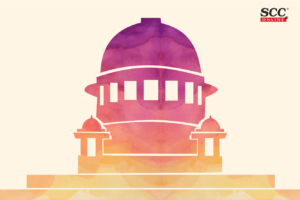Supreme Court: The bench of Dr. DY Chandrachud* and BV Nagarathna, JJ has formulated “broad, general” principles governing rules for granting parole and furlough, holding that parole and furlough are distinct in nature and that although furlough can be claimed without a reason, the prisoner does not have an absolute legal right to claim furlough.
Interpreting the Bombay Furlough and Parole Rules, made pursuant to Section 59 of the Prisons Act 1894, the Court noticed that the same do not confer a legal right on a prisoner to be released on furlough.
“The grant of furlough is regulated by Rule 3 and Rule 4. While Rule 3 provides the eligibility criteria for grant of furlough for prisoners serving different lengths of imprisonment, Rule 4 imposes limitations. The use of the expression “may be released” in Rule 3 indicates the absence of an absolute right. This is further emphasised in Rule 17 which states that said Rules do not confer a legal right on a prisoner to claim release on furlough. Thus, the grant of release on furlough is a discretionary remedy circumscribed by Rules 3 and 4 extracted above.”
The principles laid down by the Court are:
- Furlough and parole envisage a short-term temporary release from custody;
- While parole is granted for the prisoner to meet a specific exigency, furlough may be granted after a stipulated number of years have been served without any reason;
- The grant of furlough is to break the monotony of imprisonment and to enable the convict to maintain continuity with family life and integration with society;
- Although furlough can be claimed without a reason, the prisoner does not have an absolute legal right to claim furlough;
- The grant of furlough must be balanced against the public interest and can be refused to certain categories of prisoners.
Important Rulings on the difference between Furlough and Parole
State of Maharashtra v. Suresh Pandurang Darvakar, (2006) 4 SCC 776
While both parole and furlough are temporary releases from confinement, parole is granted only for a specific purpose. A prisoner is entitled to apply for furlough once he has served the minimum years of sentence as stipulated in Rule 3.
The “furlough” and “parole” have two different purposes. It is not necessary to state the reasons while releasing the prisoner on furlough, but in case of parole reasons are to be indicated in terms of Rule 19. But release on furlough cannot be said to be an absolute right of the prisoner as culled out from Rule 17. It is subject to the conditions mentioned in Rules 4(4) and 6. Furlough is allowed periodically under Rule 3 irrespective of any particular reason merely with a view to enable the prisoner to have family association, family and social ties and to avoid ill-effect of continuous prison life. Period of furlough is treated as a period spent in the prison. But Rule 20 shows that period spent on parole is not to be counted as remission of sentence. Since the furlough is granted for no particular reason, it can be denied in the interest of society; whereas parole is to be granted only on sufficient cause being shown.
State of Haryana v. Mohinder Singh, (2000) 3 SCC 394
“… when a prisoner is on parole his period of release does not count towards the total period of sentence while when he is on furlough he is eligible to have the period of release counted towards the total period of his sentence undergone by him.”
Asfaq v. State of Rajasthan, (2017) 15 SCC 55
A parole can be defined as conditional release of prisoners i.e. an early release of a prisoner, conditional on good behaviour and regular reporting to the authorities for a set period of time. It can also be defined as a form of conditional pardon by which the convict is released before the expiration of his term. Thus, the parole is granted for good behaviour on the condition that parolee regularly reports to a supervising officer for a specified period. Such a release of the prisoner on parole can also be temporarily on some basic grounds. In that eventuality, it is to be treated as mere suspension of the sentence for time being, keeping the quantum of sentence intact. Release on parole is designed to afford some relief to the prisoners in certain specified exigencies.
Furlough, on the other hand, is a brief release from the prison. It is conditional and is given in case of long-term imprisonment. The period of sentence spent on furlough by the prisoners need not be undergone by him as is done in the case of parole. Furlough is granted as a good conduct remission.
Key differences highlighted in the judgment are:
- Both parole and furlough are conditional release.
- Parole can be granted in case of short-term imprisonment whereas in furlough it is granted in case of long-term imprisonment. Duration of parole extends to one month whereas in the case of furlough it extends to fourteen days maximum.
- Parole is granted by Divisional Commissioner and furlough is granted by the Deputy Inspector General of Prisons.
- For parole, specific reason is required, whereas furlough is meant for breaking the monotony of imprisonment.
- The term of imprisonment is not included in the computation of the term of parole, whereas it is vice versa in furlough.
- Parole can be granted number of times whereas there is limitation in the case of furlough.
- Since furlough is not granted for any particular reason, it can be denied in the interest of the society.
[State of Gujarat v. Narayana, 2021 SCC OnLine SC 949, decided on 20.10.2021]
_________________________________________________________________________________________________________
Counsels:
For State of Gujarat: Tushar Mehta, Solicitor General
For Respondent: Advocate Sanjiv Punalekar
*Judgment by: Justice Dr. DY Chandrachud

